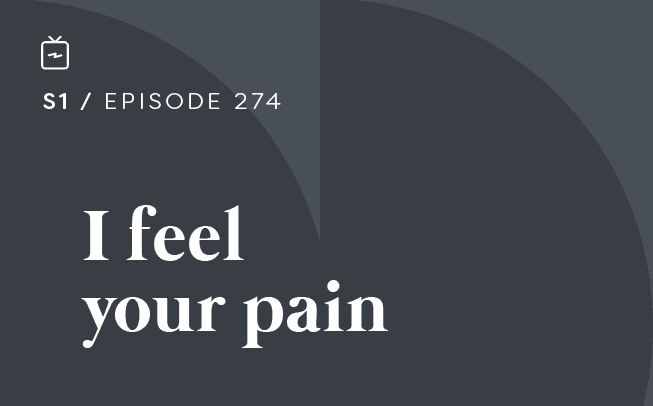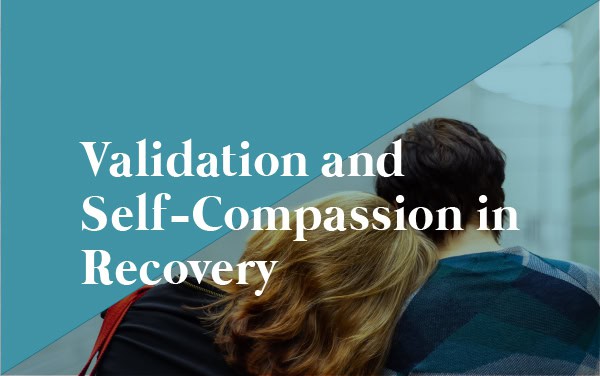
RE 274: I Feel Your Pain
Podcast: Play in new window | Download
Subscribe to the Recovery Elevator Podcast Apple Podcasts | RSS | More
Jeff took his last drink February 8, 2020. With 65 days of sobriety (at the time of recording) this is his story of living alcohol free (AF).
On today’s episode Paul opens discussing emotions. How it’s ok to feel all of them and how they help us to grow. In order to shift stagnant energy inside all of us, we have to talk about our emotions. It’s ok to not be ok. It’s ok to vent out your emotions and break off little pieces of frustration.
Are you looking to explore deeper your decision to live alcohol free and are already a Café RE member? If so, sign up for the six week course starting May 19th entitled: Ditching the Booze – The What, the Why and the How. Not a Café Re member? Sign up here and use the code OPPORTUNITY for waive the set up fee.
Paul shares the details about his free guided meditation. To find those meditations, go here.
[12:08] Paul introduces Jeff.
Jeff is 29 years old, lives in Tampa, FL. He is a plumber. He doesn’t have a family, yet! He likes to hang out with his dog Bo and go fishing, camping and attend sporting events.
[13:58] What’s your favorite alcohol free drink?
Cherry Coke.
[15:13] Give us a background on your drinking
Jeff started drinking around the age of 15 with anything he could get his hands on. He remembers being 5 years old and having a sip of his father’s drink. He is the youngest of 3 and when he would visit his older siblings in college, their friends would slip his drinks, as young as at the age of 11. Drinking was just what you did when you got older, it was part of being an adult. Everyone seemed to enjoy drinking, so he should too. In college he joined a fraternity and it again drinking was just what everyone did, it was part of the culture of college and he went along for the ride.
However at the age of 22, Jeff realized that stopping drinking might be the better choice for him.
[19:52] What were the circumstances at 22 that made you think to stop drinking?
Jeff said it was the physical effects of alcohol on his mind and body. He always felt like he could be doing more in life and alcohol was holding him back.
[21:45] Fill in the gaps from age 22 to 29 (7 years) as you were building awareness around your drinking.
Jeff began working as a Sam Adams beer rep out of New Orleans/Baton Rouge, LA. At any given time there were 15 cases of beer in his home. Part of the job was sampling beers, so loading up a cooler full of beer every day and sampling with 10 different customers wasn’t out of the norm. The idea that something Jeff felt was in his way, but also his paycheck was difficult to reconcile.
In 2015 Jeff began trying to moderate his alcohol intake. He didn’t keep much alcohol in the house, but he found when he did drink, he couldn’t stop.
[23:46] Can you talk more about when you say, “Once you start it’s hard to stop”?
Jeff described his drinking like a firework. Light the fuse, it shoots up, it’s great for 8/9 hours and then it blows up. His emotions would often get out of control. The days following his drinking were awful emotionally as well. No energy or mind power to do anything.
[25:22] Was there a rock bottom moment?
Jeff said the first rock bottom moment was in 2012. After a day of drinking, he completely lost it; throwing away his wallet, trashing the apartment he shared with a roommate, quitting his job via email with 2 hours notice.
65 days ago, after three weeks of not drinking, he had a beer and the next day got sick. He knew it was the alcohol and used those 4 days being sick as a springboard to make the change to fully living a life without alcohol.
[27:28] After those initial 4 days, how did you do it?
One day at a time. Jeff said he would call old friends, not to talk about drinking, but just to talk. He would exercise, cook and focus on doing all the things he wanted to do that alcohol was holding him back from doing. Also journaling and feeling his emotions again.
[30:34] Talk to us about how you are embracing your emotions?
Jeff said he is trying to learn what emotion he is actually feeling at a particular time. Is this happiness? Why am I feeling happy? Jeff is giving himself permission to have these feelings. He’s focusing on gratefulness.
[35:47] Where do you want to go in this AF life?
Jeff said he’s trying not to look too far ahead in life. That’s been a problem for him before. He’s focusing on being present and happy. He wants to grow and have a family and grow his business. Jeff said, “If you drink today, you are taking away tomorrow’s happiness” and he wants to be happy.
[38:08] What has it been like getting sober a little earlier in life?
Jeff said that so far, it’s been easier than expected. However, he doesn’t discount the near decade of knowing he needed to try and live an AF life. There are no distractions right now during stay at home orders. He admits this might be a bigger test once COVID-19 is over.
[43:10] What are your thoughts on relapse?
Jeff said it does mean you’re a failure, it’s all about how you handle the relapse. The past is the past and you can start over in the present.
[44:11] Rapid Fire Round
- What’s a lightbulb moment you’ve had on this journey?
December 2019, driving home after a party, Jeff drove through a construction zone. The police were called, and he was let go. Avoiding jail was a wakeup call.
- What is a memorable moment that a life without alcohol has given you?
Constantly being present and recognizing emotions.
- What’s your favorite resource in recovery?
Recovery Elevator podcast, other online stories of people overcoming addiction.
- What parting piece of guidance can you give to listeners?
Give it a try. If you can do it for 1 day, you can do it for 2.
You might need to ditch the booze if…
You are 19 years old, get kicked out of a football game, on your way home call up a family member to curse them out, break into your RA’s room and finally wake up to the police carrying you to your own room
Upcoming Events and Retreats:
You can find more information about our event here.
The book, Alcohol is SH!T, is out. Pick up your paperback copy on Amazon here! You can get the Audible version here!
This episode sponsored by:
Tiger Tail, use this link and enter the promo code: ELEVATOR15 for 15% off your order.
Resources mentioned in this episode:
Connect with Cafe RE– Use the promo code OPPORTUNITY to waive the set up fee.
Sober Selfies!- Send your Sober Selfie and your Success Story to –info@recoveryelevator.com
“Recovery Elevator – You took the elevator down, you have to take the stairs back up. We can do this.”



